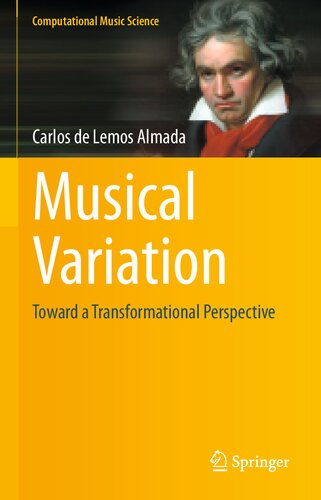

Most ebook files are in PDF format, so you can easily read them using various software such as Foxit Reader or directly on the Google Chrome browser.
Some ebook files are released by publishers in other formats such as .awz, .mobi, .epub, .fb2, etc. You may need to install specific software to read these formats on mobile/PC, such as Calibre.
Please read the tutorial at this link: https://ebookbell.com/faq
We offer FREE conversion to the popular formats you request; however, this may take some time. Therefore, right after payment, please email us, and we will try to provide the service as quickly as possible.
For some exceptional file formats or broken links (if any), please refrain from opening any disputes. Instead, email us first, and we will try to assist within a maximum of 6 hours.
EbookBell Team

4.4
92 reviewsThis book offers an in-depth analysis of musical variation through a systematic approach, heavily influenced by the principles of Grundgestalt and developed variations, both created by the Austrian composer Arnold Schoenberg (1874-1951). The author introduces a new transformational-derivative model and the theory that supports it, specifically crafted for the examination of tonal music.
The idea for this book emerged during a sabbatical at Columbia University, while the content is the product of extensive research conducted at the Federal University of Rio de Janeiro, resulting in the development of the Model of Derivative Analysis. This model places emphasis on the connections between musical entities rather than viewing them as separate entities. As a case study, the Intermezzo in A Major Op.118/2 by Brahms is selected for analysis.
The author's goal is to provide a formal and structured approach while maintaining the text's readability and appeal for both musicians and mathematicians in the field of music theory. The book concludes with the author's recommendations for further research.